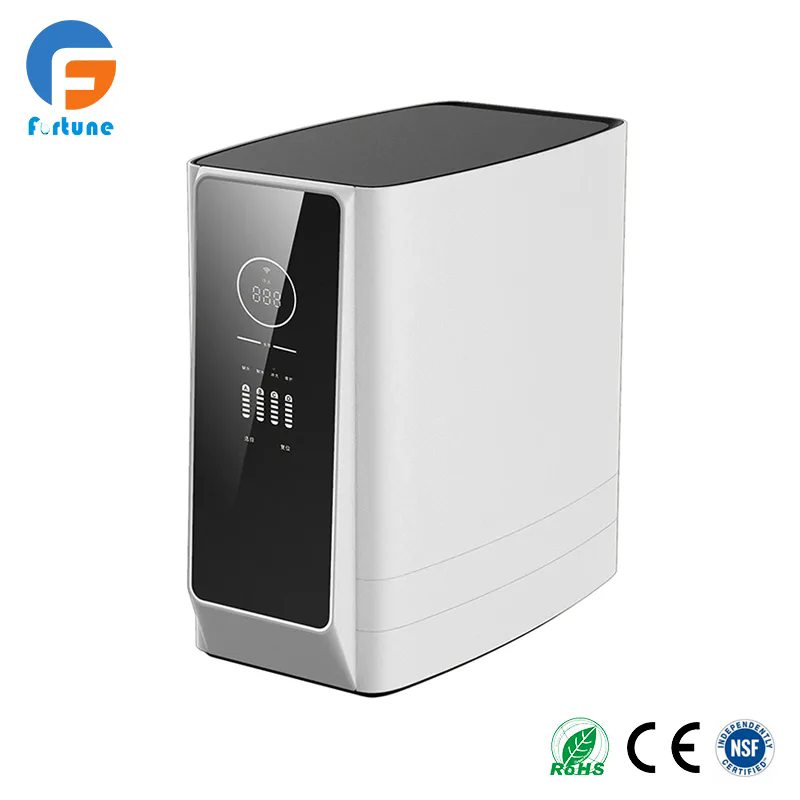Water Filters: Essential Solutions for Clean, Safe, and Tasty Water
2025-04-23
Water filters have become an essential part of modern life, offering a simple yet effective solution to improving water quality. With concerns about the purity of drinking water on the rise, more people are turning to water filtration systems to ensure that the water they consume is free from contaminants and impurities. Whether used in homes, offices, or even industrial settings, water filters play a critical role in safeguarding health and enhancing the taste and smell of water.
The primary function of a water filter is to remove harmful substances from water, such as chlorine, heavy metals, pesticides, bacteria, and other pollutants that may be present due to environmental factors or aging infrastructure. These contaminants can not only affect the taste and odor of water but may also pose health risks over time, leading to a variety of issues ranging from digestive problems to long-term exposure to toxic chemicals. By using a water filter, individuals can significantly reduce their exposure to these contaminants, ensuring that the water they drink is safe and clean.
There are various types of water filters available, each designed to target specific contaminants. Activated carbon filters, for example, are widely used to remove chlorine, volatile organic compounds, and other chemicals that can alter the taste and odor of water. These filters are often found in pitcher filters, faucet-mounted filters, and under-sink filtration systems. They work by adsorbing impurities onto the surface of the carbon, effectively trapping them and preventing them from passing through with the water.
Another common type of water filter is the reverse osmosis (RO) filter. This filtration method is highly effective at removing dissolved solids, heavy metals like lead, and other contaminants that smaller filters might miss. RO filters use a semi-permeable membrane to separate impurities from water, allowing only clean water molecules to pass through. This type of filtration is commonly used in households where water quality is a significant concern, especially in areas where the water source may contain high levels of dissolved solids or industrial pollutants.
For those looking for a more comprehensive filtration solution, multi-stage filtration systems combine various technologies, such as activated carbon, reverse osmosis, and UV light, to remove a wide range of contaminants. These systems are often installed directly into the plumbing, providing filtered water directly to faucets, refrigerators, and even showers. With the ability to address a broad spectrum of impurities, multi-stage filters offer a high level of protection against contaminants, making them an ideal choice for households with specific water quality concerns.
Apart from improving the safety and taste of water, filters can also help extend the lifespan of household appliances. For instance, minerals and sediments in unfiltered water can accumulate in appliances like water heaters, dishwashers, and washing machines, leading to inefficiency or even damage over time. By filtering out these impurities, water filters can prevent such buildup and ensure that appliances operate more efficiently, potentially saving money on repairs and energy costs in the long run.
Water filters also contribute to environmental sustainability. Bottled water has become a significant concern due to the excessive use of plastic, which has led to widespread environmental pollution. By investing in a water filtration system, individuals can reduce their reliance on bottled water, thus minimizing plastic waste and the carbon footprint associated with the production and transportation of bottled water. A high-quality water filter can provide a sustainable and cost-effective alternative to single-use plastic bottles, promoting a greener lifestyle.
Moreover, water filtration systems can be tailored to meet specific needs. For instance, some filters are designed to cater to individuals with particular health concerns, such as those with sensitive immune systems or people living in areas with high levels of contaminants like fluoride or arsenic. Filters equipped with specialized cartridges can target these specific impurities, offering a personalized approach to water filtration.
The ease of use and maintenance of water filters are additional benefits that make them popular in households and businesses alike. Many filters are designed to be user-friendly, with easy installation and simple filter replacement procedures. Depending on the type of filter, the maintenance requirements may vary, but most systems only require occasional cleaning or the replacement of filter cartridges every few months to ensure optimal performance.
As the demand for clean, purified water continues to grow, water filters have evolved to meet a wide range of needs. From basic pitcher filters to advanced multi-stage systems, there is a filter available for every household and budget. Whether it's for improving the taste of tap water or ensuring the safety of drinking water, investing in a water filtration system is a practical and reliable way to improve water quality and contribute to a healthier lifestyle.



